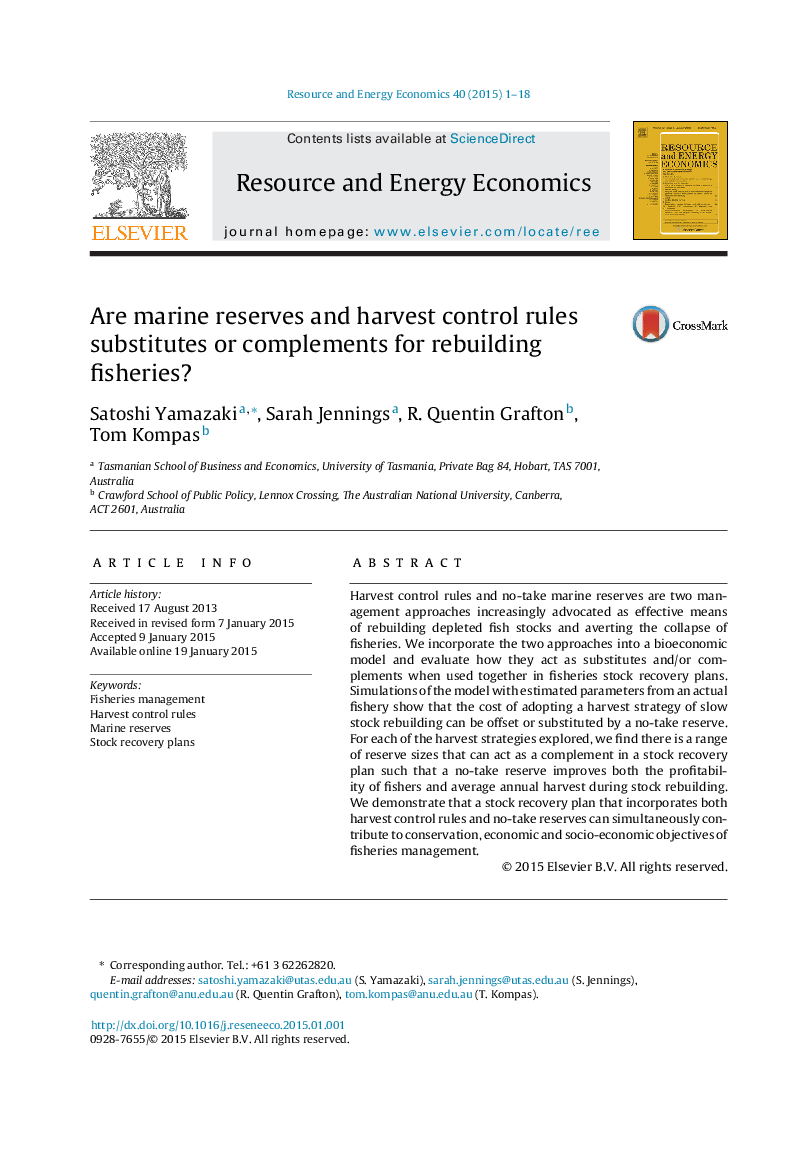| Article ID | Journal | Published Year | Pages | File Type |
|---|---|---|---|---|
| 7387500 | Resource and Energy Economics | 2015 | 18 Pages |
Abstract
Harvest control rules and no-take marine reserves are two management approaches increasingly advocated as effective means of rebuilding depleted fish stocks and averting the collapse of fisheries. We incorporate the two approaches into a bioeconomic model and evaluate how they act as substitutes and/or complements when used together in fisheries stock recovery plans. Simulations of the model with estimated parameters from an actual fishery show that the cost of adopting a harvest strategy of slow stock rebuilding can be offset or substituted by a no-take reserve. For each of the harvest strategies explored, we find there is a range of reserve sizes that can act as a complement in a stock recovery plan such that a no-take reserve improves both the profitability of fishers and average annual harvest during stock rebuilding. We demonstrate that a stock recovery plan that incorporates both harvest control rules and no-take reserves can simultaneously contribute to conservation, economic and socio-economic objectives of fisheries management.
Related Topics
Physical Sciences and Engineering
Energy
Energy (General)
Authors
Satoshi Yamazaki, Sarah Jennings, R. Quentin Grafton, Tom Kompas,
